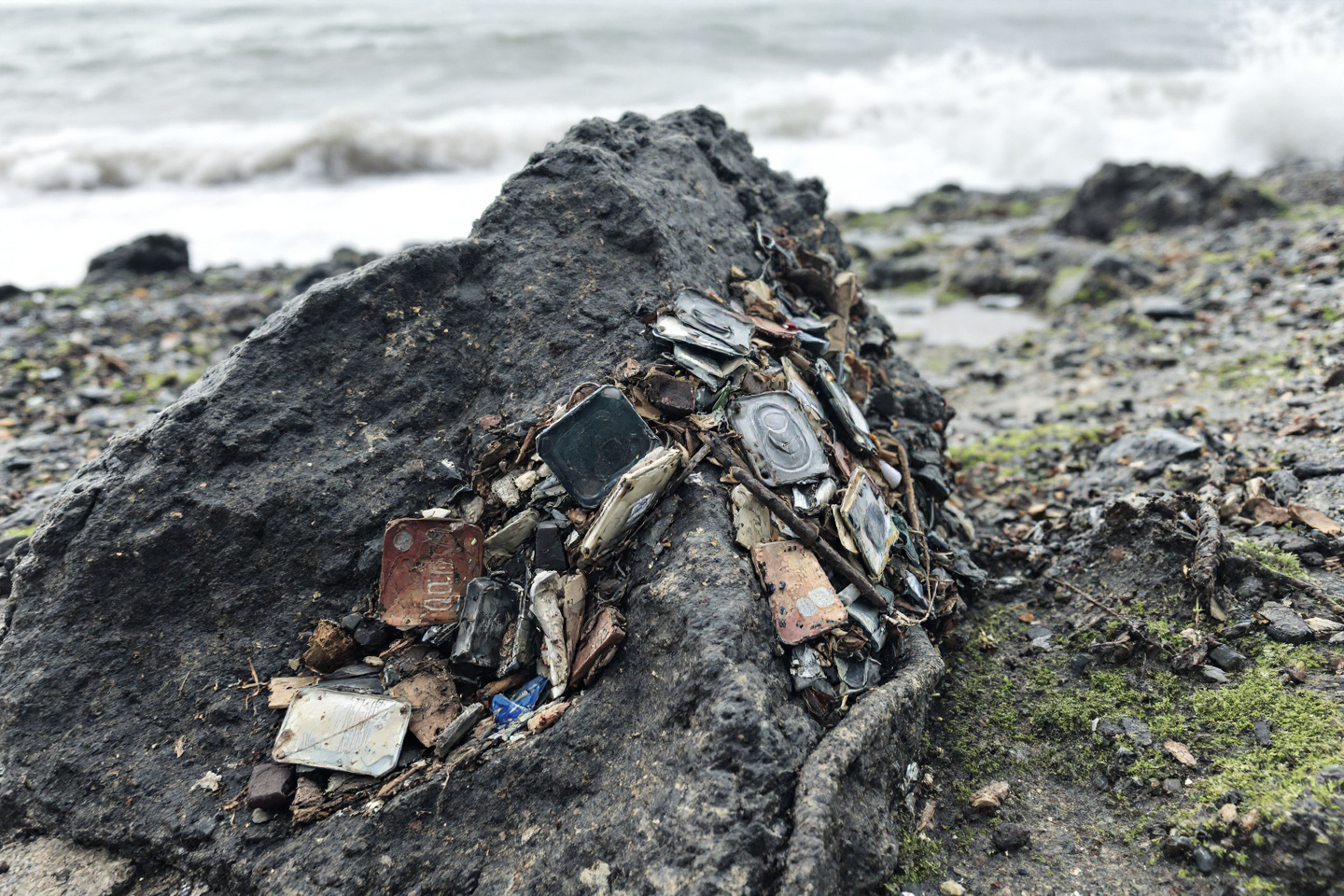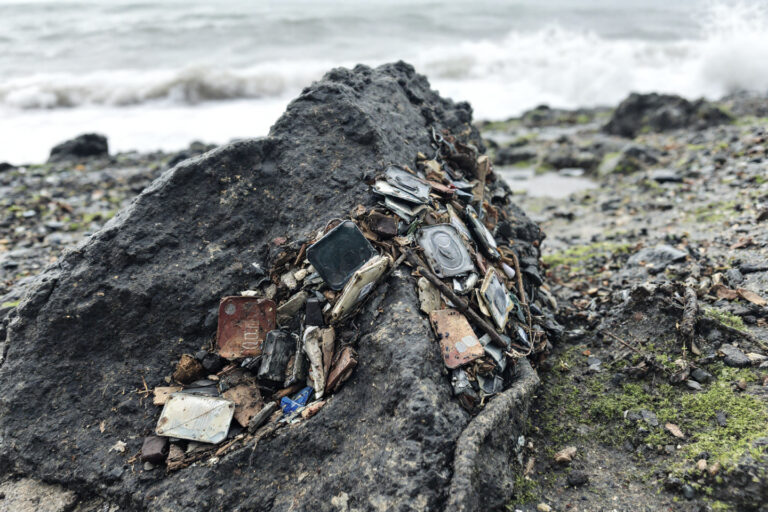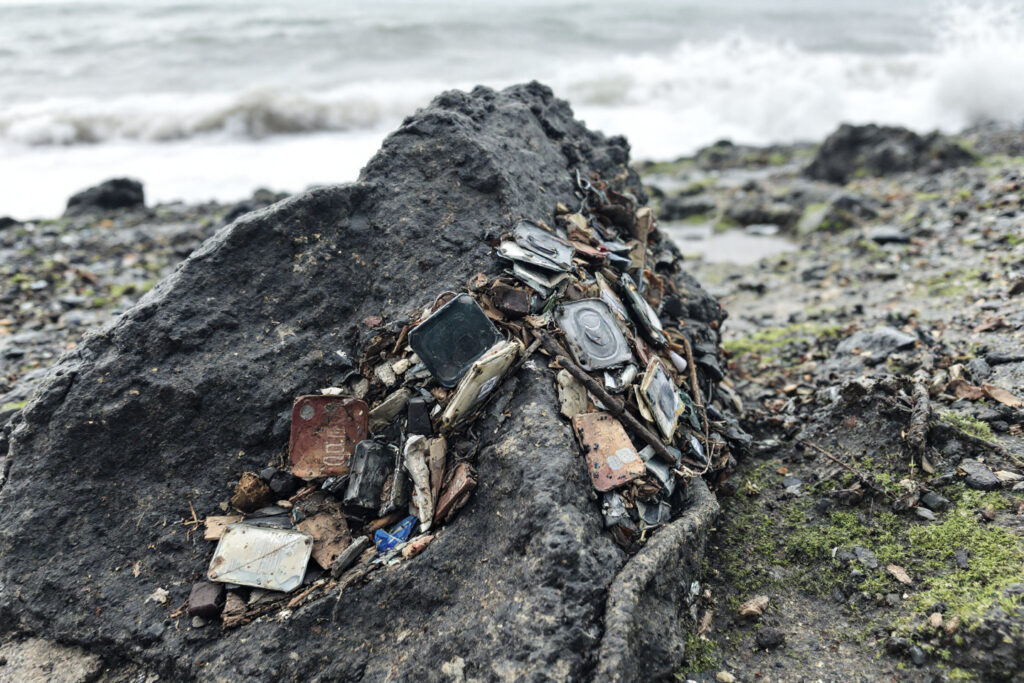In a surprising discovery, researchers from the University of Glasgow found a new type of rock forming along the coast of Derwent Howe in Cumbria, England. Unlike natural rocks that need millions of years, this material formed in just a few decades — fueled by industrial human waste.
Discarded items like aluminum can tabs, zippers, and plastic pieces have fused with natural minerals. As a result, a completely new geological material now exists. This discovery highlights how human actions are reshaping the Earth’s crust faster than ever.
How Did This Rock Form So Quickly?
The formation centers around slag, a leftover product from steel production. In the 19th and 20th centuries, industries dumped slag along Cumbria’s coast. Once exposed to seawater and air, the slag reacted with elements like:
- Calcium
- Magnesium
- Iron
- Manganese
These reactions produced natural cements, including brucite, calcite, and goethite. These cements bound the waste materials together, creating solid rock. Shockingly, this transformation happened in as little as 35 years — a geological blink of an eye.
Why This Discovery Matters
This new rock represents more than an oddity; it’s a powerful symbol of the Anthropocene Era — a time when human activity leaves a permanent mark on Earth’s systems.
- Environmental Warning: The rock shows how fast pollution affects natural processes.
- Scientific Value: It offers insights into material durability and environmental chemistry.
- Public Awareness: It reminds us of the urgent need to rethink waste and pollution.
What the Future Might Hold
The Cumbria rock raises fascinating questions. How will future geologists interpret these human-made stones? Centuries from now, they might find layers of plastic, metal, and slag preserved as permanent parts of Earth’s crust.
This rock could serve as a fossilized warning, showing how deeply human activity influenced the planet’s history.
Final Thoughts
The discovery of the Cumbria human-waste rock is a wake-up call. Our actions don’t just affect the surface — they change the very bedrock of the Earth. As we move forward, this serves as both a scientific marvel and a serious call for better sustainability.
Check out the cool NewsWade YouTube video about this article!
Article derived from: Andrei, M. (2025, April 29). A New Type of Rock Is Forming — and It’s Made of Our Trash. ZME Science. https://www.zmescience.com/science/news-science/new-rocks-human-waste-cumbria/
















